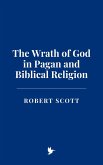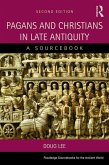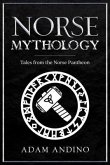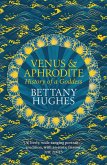As the Roman Empire transitioned from a pagan to a Christian world, the book examines how Christianity reinterpreted pagan symbols, myths, and rituals to foster a new, unified religious and intellectual framework. The conversion of Constantine and the later establishment of Christianity as the official religion of the empire signified a dramatic shift in both religious and cultural life. Over time, pagan ideas and practices were absorbed into Christian theology, art, and culture, influencing medieval Christian thought, especially during the Renaissance and Enlightenment. The book also explores how secularism and philosophical rationalism in the modern era have engaged with and revived elements of pagan philosophy, especially within the context of humanism and the Enlightenment, positioning paganism and Christianity as interwoven threads in the history of Western intellectual development.
Dieser Download kann aus rechtlichen Gründen nur mit Rechnungsadresse in A, B, CY, CZ, D, DK, EW, E, FIN, F, GR, H, IRL, I, LT, L, LR, M, NL, PL, P, R, S, SLO, SK ausgeliefert werden.









